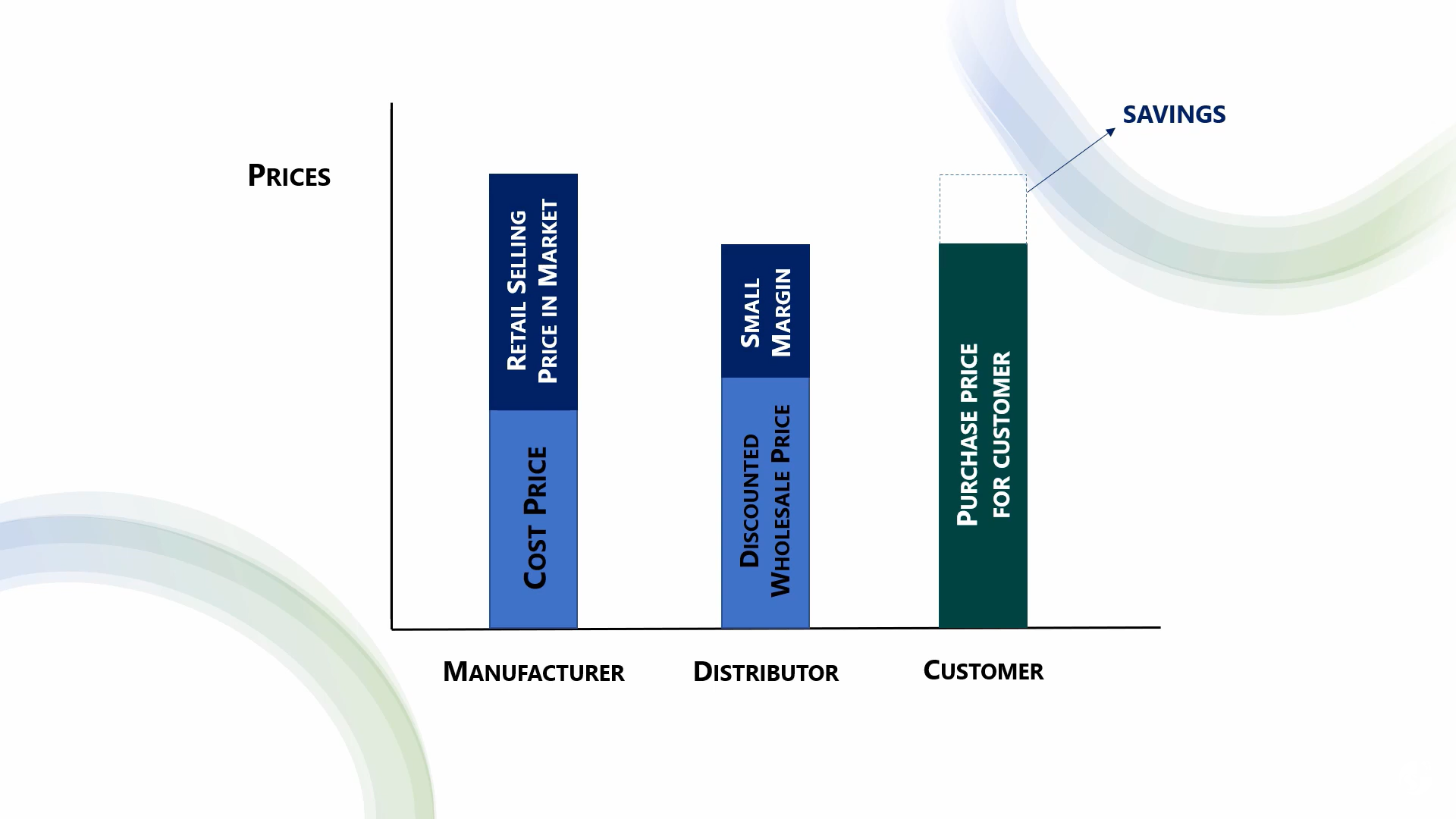The most misunderstood players in any global supply chain - DISTRIBUTORS.
Why do they exist?
What do they actually do?
Do they even add any value?
What are manufacturers not telling you about distributors?
And is it possible to do away with them?
These are questions which are often raised by different people especially due to concerns that distributors are "probably" making a simple supply chain more complicated. But there has to be a reason that this business model is still prevalent.
There is definite value in working with a distributor (whether the entity is a retailer, wholesaler, e-commerce firm, or even raw materials distributor) instead of going directly to the manufacturer. We tend to think that buying direct is cheaper, faster to attain, and/or gives you a better customer experience – but is it?
If you’re a buyer (in either B2B or B2C) and you think these middlemen are deadweight, think again! This vlog explains in detail regarding the important question:
Why Distributors Exist?
12 Key Reasons Why Distributors Exist?
1. One Stop Shop
Distributors host and sell a variety of brands and products under a single shop. This enables the user to get choice, helps them save time and also makes it cost-effective.
2. Localization
"Local" distributors understand the culture, the customs, speak the local language and also understand the values of the region you are based in. This is crucial as a foreign entity might not entirely understand your needs and will sell based on their country's norms.
In contrast, distributors usually tend to have branch or rep offices in every country they serve so as to form that local connect to help customers with their requests.
3. Distributors Sell "Solutions"
Manufacturers sell their products, irrespectively. But distributors take it upon themselves to provide solutions for customers owing to their wide array of brands and product offerings.
Essentially, distributors solve your problems by understanding your needs.
4. In-Stock Products
Offering products in stock has a direct correlation with time-saving for customers. Distributors offer stocked products which can help eliminate waiting times for productions and also provide instant gratification.
5. Inventory Management
Sometimes, customers prefer the goods be delivered to you at a later time after the order is placed. This is why distributors offer inventory management programs and scheduled deliveries to help reduce your inventory costs.
By storing your goods for you, you don’t have to pay for your own warehouse space and only need to pay when you get your goods delivered.
6. Small-Volume Purchases
More often than not, buying directly from manufacturers will pose a unique problem - MOQ. Customers will be forced to pay for the Minimum Order Quantity despite the requirement being relatively lesser.
If you approach distributors on the other hand, you can get goods in small volumes, enabling you not to have to deal with the MOQ that’s expected by the manufacturer.
7. Direct-to-Door Deliveries
Distributors go the extra mile to ensure your products are delivered to your doorstep, excusing you from all the hassles that are a part of importing your goods from other countries through complex/rigorous customs procedures.
Goods can get delivered directly to your doorstep without having to deal with the frustration and the money associated with the freight, the duties, the taxes, and other customs charges.
8. Cheaper than Manufacturers
Contrary to popular belief, distributors can be cheaper than buying from the manufacturer directly. How is that?
This is because distributors buy in large volumes and are getting products at a discounted price (bulk volume pricing).

For instance, if distributors receive a 20% discount from the manufacturer, they add a small 10% margin only and sell it to you for a 10% discount. This way you save up on the extra 10%.
9. Payment Terms
Understanding that most businesses have cash flow issues and work on credit, distributors take it upon themselves to ease the financial crunch for customers.
Knowing that consumers & customers may not have the money to pay upfront, distributors will often work with them so that you can first receive the goods and then pay maybe 30, 60 or 90 days later.
10. Brand Awareness & Promotions
The marketing side of things often goes under the radar when talking about distributors. With an array of brands and products on offer, distributors actively market their products to keep the customers educated.
In order to boost sales, they also often create exciting promotions. Besides these distributors create loyalty programs for customers, offer rewards or cashbacks for purchases, bundled package promotions and so on.
11. Extended Warranties
Keeping customers happy and exceeding their expectations is something distributors try to do. Manufacturer warranties are usually expected as a bare minimum by customers. Distributors go 1 step further though.
If you go to a car dealership store for example today, in addition to the 1 year manufacturer’s warranty, they might give you a 2, 3 or even 5 year extended warranty period so that you can have peace of mind in case that there’s a failure.
12. Efficient Returns Policies
Typically, in case of a failure, the standard procedure is to return the product to a manufacturer, they would test the product and then give the product back with a replacement or your money back. This process is slightly tedious and could go upto 5-6 weeks or even longer which makes the return policy tardy.
What a distributor does on the contrary is that, they might actually give you a replacement first and then do the testing eliminating any time you spend waiting.
As you can see, there is tremendous value in working with distributors regardless of where you are in the supply chain.
The value of distributorship has only become more prominent in the current scenario where global supply chains are disrupted and these middlemen show their value. If you need more info, feel free to contact us at hello@supremecomponents.com right away.

